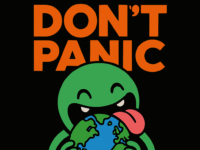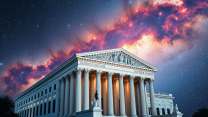
What is Freedom of The Press?
Freedom of the Press is a curious arrangement found on the planet Earth, specifically enshrined in a document the Americans call their “Constitution” — a piece of parchment they treat with the sort of reverence most civilized planets reserve for their primary sun or a really good sandwich.
The thing about Earth governments is that they have an unfortunate tendency to want to control what their citizens think, say, and know. This is, of course, terribly inconvenient for the citizens, who occasionally like to think, say, and know things that their governments find embarrassing — such as where all the money went, or why the leader’s nephew suddenly owns all the oxygen.
The Americans, in a fit of what can only be described as optimistic naivety, decided to write down that their government was specifically forbidden from interfering with people who print things. This was called the First Amendment, which tells you something about their priorities.
The Amendment itself is refreshingly brief, especially for a species that typically requires seventeen pages of legal text to sell a used hover-car — or “automobile” as they quaintly call them. It essentially says: “Dear Government, hands off the newspapers. Love, The People Who Are Technically In Charge Of You.”
The Upside
Information flows freely, unfiltered by those in power. Journalists can investigate, report, and generally make politicians nervous at dinner parties.
The Downside
Any information can flow freely. Accuracy is optional. This means that alongside legitimate news, you’ll find publications insisting that the planet is flat, that vegetables are plotting against humanity, or that the government is run by shape-shifting lizards (which, to be fair, would explain a lot).
The Verdict
The Founding Fathers — a group of bewigged gentlemen who somehow created a democracy while wearing tights — gambled that the benefits of a free press outweighed the risks of occasional nonsense.
So far, the experiment continues.










